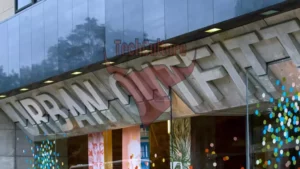Tech stocks tumbled dramatically on Monday, extending a global selloff from last week and fueling apprehensions regarding decelerating economic growth. The spotlight fell on industry behemoths, with Apple taking a notable hit. Shares of the iPhone maker plummeted over four percent, driven by the revelation that Warren Buffett’s Berkshire Hathaway offloaded nearly half of its holdings in the company. This development is a telling indicator of broader market sentiments and the tightening financial landscape that tech companies now navigate.
At the same time, AI chipmaker Nvidia experienced a rollercoaster morning, plunging as much as 13 percent when the markets opened. The sharp decline came after The Information reported delays in the launch of its next-generation AI chips by three months. Although Nvidia managed to rebound slightly to a loss of around six percent by midday, the episode underscored the volatility and heightened scrutiny surrounding tech stocks. Investors are clearly jittery, and the Federal Reserve’s slow-paced approach to cutting interest rates isn’t helping to soothe market nerves.
Compounding the unease, a recent payroll report indicated a stark slowdown in new job creation in the United States last month. This data point adds another layer of complexity to the already murky economic outlook. Analysts are increasingly concerned that the tech industry, despite its flashy innovations and bold promises, is not delivering the anticipated financial returns. Generative AI, in particular, has yet to produce meaningful profits, even though it has attracted billions in investments. This has led some to speculate that we might be on the brink of an “AI bubble” that could soon burst.
The scenario paints a challenging picture for AI ventures. Tech giants like Microsoft and Google have been burning through staggering amounts of capital to expand AI data centers, as revealed in their second-quarter earnings reports last month. While the viral success of ChatGPT has spurred interest and investment in AI, the business model for many of these AI-driven services remains shaky. Predominantly positioned as freemium subscription services in a saturated market, these offerings have not convinced enough customers to part with their cash.
Amidst all this turmoil, the question of whether the AI sector is set for another significant freeze looms large. While it is possible, it is by no means a foregone conclusion. The current economic climate, combined with shifting investor priorities and growing skepticism about the practical utility of AI, certainly tightens the timetable for AI initiatives to prove their worth. Despite the high stakes and expensive endeavors, the technology has yet to reach a stage where it can be deemed universally useful. Nonetheless, some financial analysts remain optimistic. UBS, for instance, maintains a positive outlook on the AI growth story, suggesting that the recent dip in share prices could present a strategic buying opportunity.
In summary, the recent tech stock crash serves as a stark reminder of the uncertainties and challenges facing the industry. As economic signals continue to flash warning lights and investor sentiment wavers, the tech sector finds itself at a crucial juncture. Whether this will lead to a broader re-evaluation of AI investments or a temporary setback remains to be seen, but one thing is clear: the days of easy money and unbridled optimism in tech are now tempered with caution and scrutiny.




